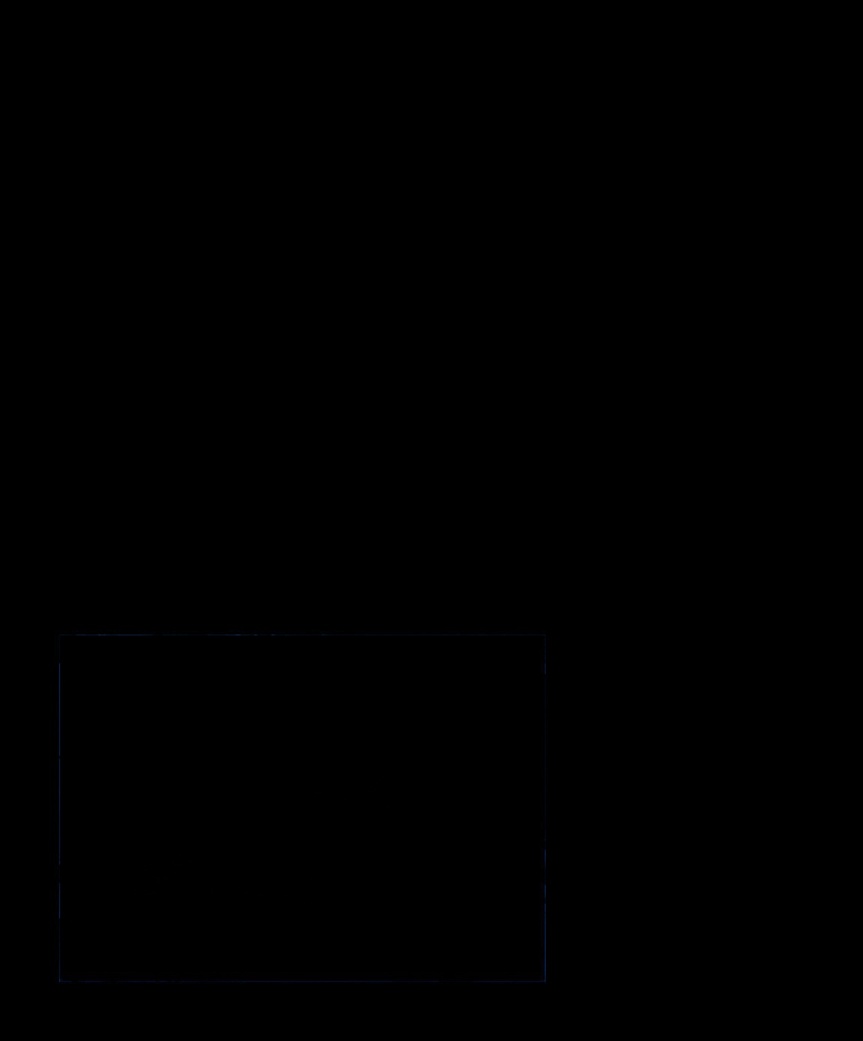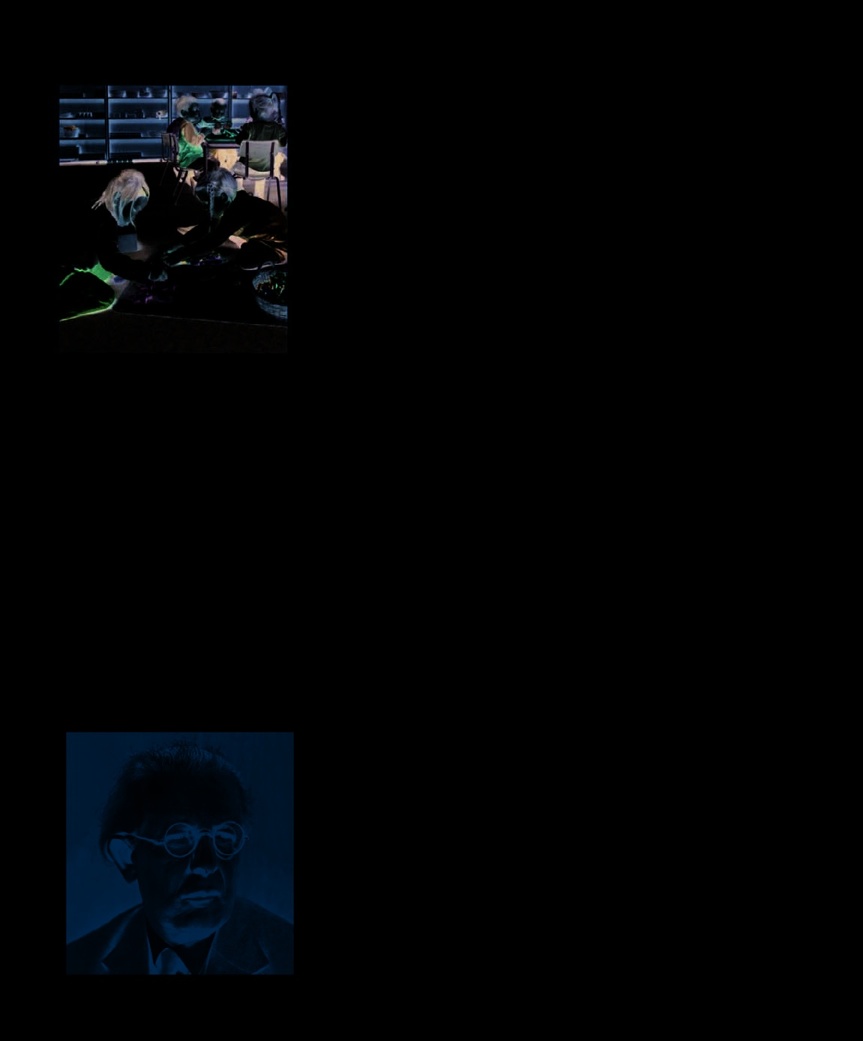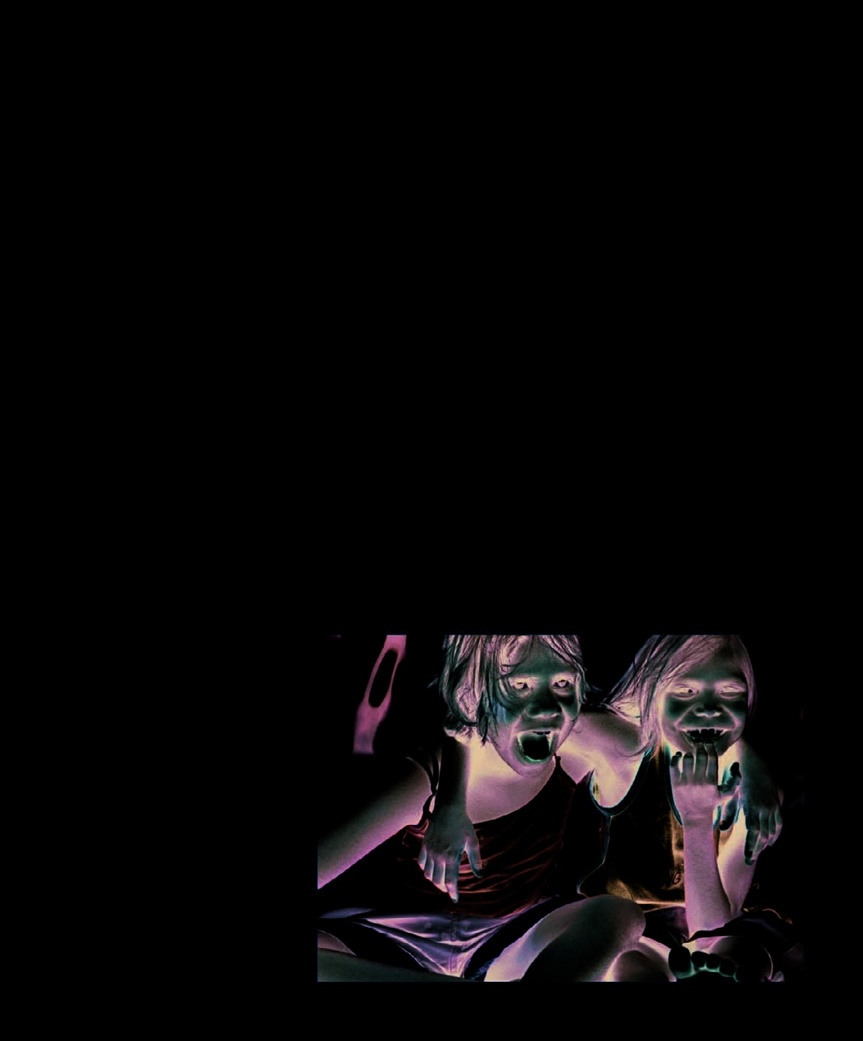The Psychology Book (84 page)
Read The Psychology Book Online
Authors: Unknown

egocentric, able to see the world
From years two to four, the child
offering an understanding of what
only from their own viewpoint.
thinks in absolute terms (such as
constitutes “a kitchen,” a “best
At the beginning of this stage,
“big” or “biggest”); from four to
friend,” or “democratic
infants practice reflexes without
seven, they begin to use relative
understanding or intention; later
terms (such as “bigger” or
they can extend and coordinate
“heavier”). The ability to think
reflexes with objects. Then they
logically is still limited and children
begin to coordinate their senses in
remain egocentric, unable to see
a way that anticipates events; for
things from another’s perspective.
example, they can imagine objects
The third stage is the concrete
Knowledge…is a
that are not present and find hidden
operational stage, and this is
system of transformations
ones. They begin to experiment
when a child becomes capable of
that become progressively
and set goals in their use of objects,
performing logical operations, but
adequate.
and think about a problem before
only in the presence of actual
Jean Piaget
acting. These developments mark
(concrete) objects. The child now
the completion of the first stage.
begins to grasp the concept of
As the child moves toward
conservation, understanding that
the development of self-awareness,
the quantity of an object remains
they now have the tools of
the same despite physical changes
representational thought and can
in its arrangement. They realize

DEVELOPMENTAL PSYCHOLOGY 267
that if you pour liquid from a short,
required through each of the stages;
wide glass into a tall, thin one, the
assimilation, accommodation, and
amount of liquid remains the same
equilibrium. Assimilation is the
despite the difference in height.
process by which we incorporate
Children can also understand that
new information into existing
objects can be sorted according to
schemas. Accommodation is
Intelligence is what you
many qualities simultaneously—a
required when, in the process of
use when you don’t know
marble can be large, green, or clear.
assimilating, we discover that we
what to do.
A little less egocentric now, children
need to modify existing knowledge
Jean Piaget
begin to incorporate more relativity
or skills. A child who is able to
into their viewpoints.
assimilate successfully most or all
During the fourth stage—the
new experiences is said to be in
formal operational stage—children
a state of equilibrium. However,
begin to manipulate ideas (rather
if the existing schemas are
than simply objects) and are able
inadequate for coping with new
to reason purely on the basis of
situations successfully, then the
verbal statements. They no longer
child is in a state of cognitive
approach to teaching, in theory and
need to refer to concrete objects,
disequilibrium, and the schemas
in practice. Rather than trying to
and can follow an argument. They
need to develop in order to
teach a child to think and behave
start to think hypothetically, and
accommodate the necessary
like an adult, educators were
this new capacity for imagination,
information. Essentially, this is the
encouraged to view their
and their ability to discuss abstract
process of adaptation, one of the
work as an opportunity to engage
ideas, reveals that they have now
most basic forms of learning.
children in novel and individual
become less egocentric.
modes of thinking. Piaget believed
Impact on education
that education should inspire
Reaching equilibrium
Piaget’s work inspired the
people to create, invent, and
In addition to defining the four
transformation of the education
innovate, and actively discourage
stages, Piaget identified several
systems of Europe and the US
them from conforming or following
fundamental facets of the
during the 1970s and 80s, bringing
established guidelines at the
developmental process that were
about a more child-centered
expense of imagination. If the
natural process of learning—from
infancy onward—is individual,
active, and exploratory, then so too
should be a system of education
that guides children’s formal
intellectual development.
Another vitally important aspect
of a child-centered education is an
awareness of the concept of
“readiness,” which involves setting
limits on learning based on the
child’s stage of development.
One of Piaget’s most enduring
contributions to the field of
education, particularly with ❯❯
Educators should not insist
on a particular way of doing or
understanding something, Piaget
(pictured left) asserted, but nurture
children’s natural learning processes.

268 JEAN PIAGET
Piaget believed that children learn
from being active rather than from
passive observation, and teachers
must adapt to this. Interaction
between students is of primary
significance in the classroom, and
Children have real
having established that one of the
understanding only
best ways to secure knowledge is
of that which they
to teach it to somebody else, it
invent themselves.
follows that if children are allowed
Jean Piaget
to discuss topics actively among
themselves (rather than listening
passively to lessons), they are more
likely to deepen and consolidate
their existing knowledge.
Children at this Montessori school
Moral education
bring Piaget’s ideas to life. They are
As with intellectual development,
promoted peer interaction within
encouraged to build their own learning
Piaget believed that children also
the classroom as an integral part
with hands-on activities and plenty of
develop morally in stages and, for
of the learning experience.
discussion with their peers.
the most part, autonomously. Real
The role of the teacher in
moral growth is not the product
Piaget’s child-centered classroom
regards to mathematics and
of adult instruction, but is based
is, therefore, almost one of a mentor
science, is the acknowledgement
on a child’s own observations of
and an enabler rather than that of
that teachers need to be aware of
the world. Piaget viewed peer
a standard instructor. Teachers
and honor an individual child’s
interaction as absolutely crucial for
need to assess carefully each
capacity to deal with a novel
the moral development of children.
student’s current level of cognitive
experience or to take on fresh
Peers, not parents or other authority
development and then set tasks
information. The tasks that a
figures, are seen as being vital to
that are intrinsically motivating.
teacher sets should reflect, and also
moral growth, providing a key
Interestingly, teachers must also
be adapted as precisely as possible
source for understanding concepts
create cognitive disequilibrium
to, the individual student’s
such as reciprocity, equality, and
in their students in order to help
cognitive level and capabilities.
justice. Consequently, Piaget keenly
them advance to the next stage of
Jean Piaget
Born in Neuchâtel, Switzerland,
observations about cognitive
Jean Piaget grew up with an
development. In 1955, he
insatiable interest in the natural
created the International Centre
world, and at the age of 11 he
for Genetic Epistemology and
wrote his first scientific paper.
was its director until his death
He studied natural sciences and
in 1980. He was awarded prizes
earned a PhD from the University
and honorary degrees worldwide.
of Neuchâtel at the age of 22. His
interest moved to psychoanalysis
Key works
and he developed his theories of
genetic epistemology in France.
1932
The Moral Judgment of
In 1921, he became the director
the Child
of the Jean-Jacques Rousseau
1951
The Psychology of
Institute in Geneva. He married
Intelligence
Valentine Châtenay and they had
1952
The Origins of Intelligence
three children, who were the
in Children
subjects of many of Piaget’s
1962
The Psychology of the Child

DEVELOPMENTAL PSYCHOLOGY 269
development, thereby providing
olds were able to adjust their
theory—which states that children
genuine learning opportunities.
explanation of something in order
require the help of adults or older
They should focus on the process
to clarify it for a blindfolded person,
children to complete some tasks—
of learning, rather than on the
and would use simpler forms of
served as a response to Piaget.
achievement of end results, by
speech when talking to younger
Another area of exploration has
encouraging their students to ask
children, which is inconsistent
been the assumed universality of
more questions, experiment, and
with Piaget’s description of an
the developmental stages identified
explore, even if that means making
egocentric child who has no
by Piaget. Although he had no
some mistakes along the way.
awareness of the needs of others.
compelling evidence to support
Above all, they must engender a
